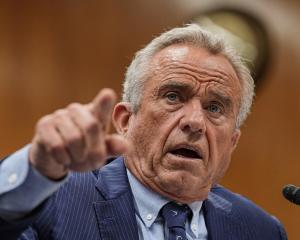
The dramatic steps, which came into effect at 11.59pm yesterday, are an attempt to "protect New Zealand" from the Covid-19 virus, Prime Minister Jacinda Ardern said last night.
"Protecting New Zealanders from Covid-19 is our No1 priority."
To do that, "we need to slow it down."
In taking historic measures to protect public health, the Government has stopped short of ordering the kind of community lockdown and cancellation of non-essential services that has hit parts of Europe, the United States, China and other countries.
"At no time in New Zealand’s history has a power like this been used, and I recognise how extraordinary it is," Ms Ardern said last night.
"But we have to make decisions in the best interests of the health of those who live here, whether they be young or old, whether they be newly arrived or permanent."
The new border measures will be reviewed within a fortnight, but could remain in place for months as the global spread of the deadly virus shows no sign of slowing down.
Ms Ardern said the new restriction was underscored by the fact that all of the 28 confirmed cases, including eight new cases yesterday, were related to overseas travel.
The hope is to at least slow the transmissions into small, manageable waves that do not overwhelm the health system.
The decision, made at a special Cabinet meeting, follows reports of tourists deliberately flouting self-isolation restrictions and rapidly worsening outbreaks overseas.
The move was aggressive and no other country with so few confirmed cases had done anything like it, but it was important to keep New Zealand as protected as possible, she said.
"The decision Cabinet has made is that a country devastated by Covid-19 is an economy devastated by Covid-19."
The Government could not give any certainty about how long the borders would be shut or gatherings banned, as the global situation was changing rapidly.
The border would stay open to New Zealand citizens, permanent residents and their partners and children, but Ms Ardern urged them to come home quickly.
New Zealanders were advised yesterday: "Do not travel" - the highest warning possible
Qantas and Jetstar will both suspend all international flights from the end of the month.
The Government is considering mercy flights for New Zealanders stuck overseas.
There would also be a small number of exemptions for humanitarian reasons, vital health workers and citizens of Samoa and Tonga who need to travel to New Zealand.
Ms Ardern contacted Australian Prime Minister Scott Morrison after the decision was made.
Moments before the decision was announced, Australia also closed its borders to non-residents and citizens.
The New Zealand border closure does not apply to freight and Ms Ardern reassured New Zealanders their supermarket shelves would remain stocked, as long as workers had a chance to restock them.
Both supermarket chains have now introduced limits on some items.
"There is no need to panic buy," she said.
A new ban on indoor gatherings of more than 100 people would temporarily change how New Zealanders met and bars and restaurants would not be the same, Health Minister David Clark said.
The Government will work with the hospitality sector to help it understand the implications and come up with possible solutions to ensure social distancing and contact tracing.
The measures are effective immediately and will be in place for some time - most likely months.
Ignoring the ban could result in a fine of up to $4000 or six months’ imprisonment.
The new ban comes after events with 500 or more people were forbidden earlier in the week.
Comments
"A new ban on indoor gatherings of more than 100 people", and prisons, what about them?.
Well, that is all well and good, but where is the jolly TESTING programme?
Why are we dithering around with this? Just focus on the roll out of testing. Testing and the systems for such have examples of success in other countries and cities. Why are we focussed on self isolation only? Stop the guessing Jacinda, just TEST!!!!!!












